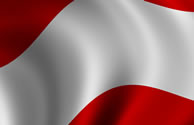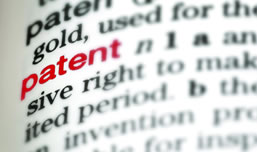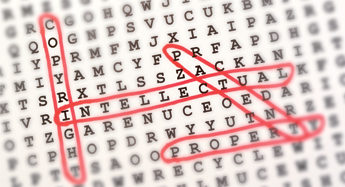Who is entitled to a patent?
When considering applying for a patent to an invention, or dealing in patent rights, it is important to understand who is entitled to the patent and whether there may be third party claims to rights of ownership. This can be a particularly complex issue in the context of employee inventions and where there is more than one inventor. Members of our European team explain the issues and describe the key rules applying to patent entitlement in Austria, Germany and the UK:
Austria
Austrian Patent Law entitles the inventor to be designated as inventor. This right is neither assignable nor inheritable. Furthermore, only the inventor and his successors are entitled to the grant of a patent. The entitlement to the grant of a patent and the right to be designated as inventor does not depend on any formality. These rights are enforceable against anyone, but do not provide any exclusive right to use the invention and the right to the grant of the patent will fall away as soon as the invention is made public.
Inventors are always natural persons, but their right as inventors can be transferred to their employers. An employee’s invention is understood to be an invention of an employee if the invention’s subject matter falls within the activities of the enterprise in which the employee is active and if either: the activity that led to the invention forms part of the employee’s obligations (e.g. the employee is working in the R&D department); the invention was based on the activities as employee; or, the invention was facilitated by using the employer's experience or resources. Employees making an invention during the term of their employment are entitled to the grant of a patent, unless stipulated otherwise in the employment agreement. If the employment is governed by public law, the employer may, without prior agreement with the employee claim the employee’s invention as a whole or the right to use such inventions.

The right arising from a patent application and the patent itself are inheritable. These rights can be transferred to others, either by a legal transaction, by a court decision or a by a transfer on death. A patent right securities and other rights in the property of a patent are acquired and bind third parties only when entered in the Patent Register, which is administered by the Patent Office.
If several persons co-operate to achieve an invention, these joint-inventors can together apply for the grant of a patent. Only persons who creatively contributed to the inventive concept themselves are joint-inventors. Others that simply assisted or only proposed a suggestion are not regarded as joint-inventors. If joint-inventors apply for a patent, the patent coming into existence does not determine each inventors share to the patent. If the co-patentees did not agree on different terms, the regulations of the Patent Law and additionally those of the civil law become effective as subsidiary law on this issue – the Patent Law itself does not determine the relation of the co-patentees among themselves.
Depending on whether the co-patentees are qualified as co-owners or as a partnership organized under the civil code, different rules apply. If the patentees are willing not only to possess and administer the patent but to use it in an organized joint cooperation, if they tend not just to keep and administer the patent but try to gain a joint benefit, if an organisation is used or if the patentees agreed to cooperate to gain profit (though this is not significant for non-profit organisations), it is likely that the co-patentees form a partnership organized under the civil code. Otherwise they will probably be regarded as co-owners. In summary, the requirements for a partnership organized under the civil code are higher than those for co-owners.
If the co-patentees qualify for co-ownership the rules on co-ownerships apply. Therefore, in cases of doubt, the proportion of the co-patentees is assumed to be equal, but the opposite can be proven, if the values of the contributions to the invention of the respective co-patentees differ. Patent law states that each patentee can prosecute patent infringements before court and that, in case of doubt, third persons can be allowed to use the invention only by a joint grant of rights by the patentees. A license for the joint patent therefore needs to be granted by each co-patentee.
 If the co-patentees form a partnership organized under the civil code, two rules of the Patent Law rules are at least not applicable internally between the co-patentees. These rules are the ones stating that licenses to third persons should only be jointly granted and that each patentee has the right to solely prosecute infringements. If the co-patentees have not agreed on different terms, the rules of the civil law apply to the internal decision-making about whether or not a license shall be granted.
If the co-patentees form a partnership organized under the civil code, two rules of the Patent Law rules are at least not applicable internally between the co-patentees. These rules are the ones stating that licenses to third persons should only be jointly granted and that each patentee has the right to solely prosecute infringements. If the co-patentees have not agreed on different terms, the rules of the civil law apply to the internal decision-making about whether or not a license shall be granted.
Patent licenses are of practical importance. A patentee can permit third persons to use the invention in all the territories covered by the patent or in a part thereof. The licensee is usually bound to pay a fee to the licensor and the grant is voluntary. The licensee obtains the license rights already with the licence agreement. But the license right binds third persons only on the entry of the license in the Patent Register as mentioned above.
Depending on whether the grant of a license is to be qualified as an important change to or as an ordinary administration of the specific co-patentees’ partnership, the applicable rules differ. For the ordinary administration majority decisions are sufficient. If the grant of a license is qualified as an important change for the specific partnership, the overruled minority can demand collateral securities. Still, independent of the internal structure and agreement, vis-à-vis third persons each co-patentee can prosecute patent infringements before the court1.
Germany
Under Section 6 German Patent Act the inventor has the right to a patent and can apply for patent protection of his invention. In practice, since most inventions are made by employees in the course of an employment, the German Employee Invention Act usually applies. An employee is obliged to notify the employer about an invention made in the course of the employment. Subsequently, the employer can claim all rights to the invention from the employee under Section 6 German Employee Invention Act and in this way becomes entitled to all employee invention rights. After having successfully claimed the employee invention rights, the employer is entitled to file for patent protection. In consideration of the transfer of all employee invention rights, the employer owes the employee adequate remuneration.
The entitlement to a patent is in principle independent from the ownership as entered into the patent register. The transfer of a patent as such is conducted with no involvement of the patent register. A transfer of a patent does not even require a written agreement and can be conducted orally, although it is not recommended that parties conclude merely an oral agreement. The only exception in this regard is the transfer of a European patent application. Under Article 72 European Patent Convention, such a transfer requires an agreement in writing that is signed by both parties to the agreement. In consequence, it can happen that the legal ownership and the respective entry of the patent owner in the patent register deviates.
However, when it comes to infringement proceedings of a patent, the German Courts determine the entitlement to a patent according to the entry in the register. The German Supreme Court ruled in May 2013 in its decision Fräsverfahren2 that the person or company that is entered into the patent register is entitled to pursue the rights conferred by the patent. In consequence, this means that, if a change of recordal has not been made, the transferee of a patent is lacking this entitlement. The entitlement still lies with the transferor.
However, the entitlement of the still registered transferor before German Courts is of course not without its limits. The transferor can only pursue an injunction vis-á-vis the infringer in its own name. As regards damages and the related claim to rendering of accounts for instance, the merely registered transferor can only claim that the damages suffered by the transferee are compensated. In the case of a deviation between merely registered and true patent owner, the infringer, thus, need not be afraid of a double loss in infringement proceedings.
If a patent has been transferred, it is recommended that the transferee ensures a prompt change of registered owner in the patent register. Otherwise the transferee is not entitled to pursue the rights conferred by the respective patent before the German Courts.
UK
A patent may be granted to the inventor (or joint-inventors) of an invention or a third party who owns the invention by virtue of an agreement with the inventor. Special rules govern ownership of an invention where the inventor is an employee. In the UK, an employer will own his employee’s invention (and any patent for that invention) where:
- the invention is made in the course of an employee's normal or specifically assigned duties and the invention could be reasonably expected to result from those duties; or
- the invention is made in the course of the employee's duties where the employee has, because of the nature of the duties and the particular responsibilities arising from them, a special obligation to further their employer's interests.
 It is therefore important that an employee’s duties are recorded accurately in their employment contract and/or job description and updated as their role develops. Only senior employees (such as directors) are likely to be held to have a “special obligation” to further their employer’s interests. The laws on ownership of employee inventions differ quite considerably in other countries. Local advice should therefore be sought if employees based outside the UK are involved in the development of new products.
It is therefore important that an employee’s duties are recorded accurately in their employment contract and/or job description and updated as their role develops. Only senior employees (such as directors) are likely to be held to have a “special obligation” to further their employer’s interests. The laws on ownership of employee inventions differ quite considerably in other countries. Local advice should therefore be sought if employees based outside the UK are involved in the development of new products.
Where an employer owns his employee’s invention, it is possible for the employee to claim compensation if his invention or the patent is of outstanding benefit to his employer and it is just to award such compensation. “Outstanding benefit” means something out of the ordinary that would not normally be expected to arise from the duties that the employee is paid for. The size and nature of the employer’s business is also taken into account so whilst discovery of a new formulation technique could be of “outstanding benefit” to a start up company the position may be different for an established manufacturer of pharmaceuticals. Compensation claims by employees are rare and to date the courts have only awarded compensation to an employee on one known occasion.
If you have any questions on this article or would like to propose a subject to be addressed by Synapse please contact us.
1 Gassauer-Fleissner, Die Rechte mehrerer Berechtigter an Immaterialgüterrechten, ÖBl 2009/29; Wiebe, Wettbewerbs- und Immaterialgüterrecht, 2012(2).
2 Referring to Section 30 paragraph 3 sentence 2, German Patent Code.


Bernhard is an associate in the Trade Marks & Designs group based in our Vienna office.

Rainer
Schultes


Matthias Hülsewig
Matthias is a senior associate in the Patents group based in our Düsseldorf office.

